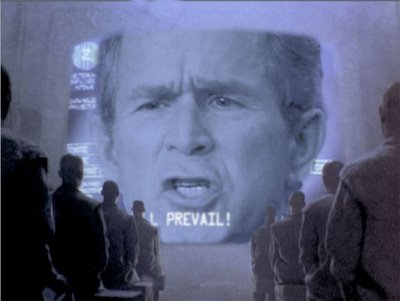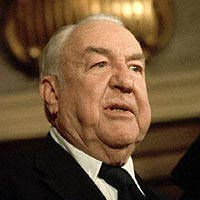
Many have lamented that the end of the draft, which, democratically brought the poet and novelist into the infantry along with those less inclined to pen prose, would entail that vivid descriptions of the battlefield would be absent from the panorama of modern conflicts.I believe Brian Turner's work readily dispels that concern.
(From the official bio:)
Brian Turner earned an MFA from the University of Oregon and lived abroad in South Korea for a year before serving for seven years in the US Army. He was an infantry team leader for a year in Iraq beginning in November 2003 with the 3rd Stryker Brigade Combat Team, 2nd Infantry Division. Prior to that, he was deployed to Bosnia-Herzegovina in 1999 with the 10th Mountain Division.
Here, Bullet
If a body is what you want,
then here is bone and gristle and flesh.
Here is the clavicle-snapped wish,
the aorta's opened valves, that leap
thought makes at the synaptic gap.
Here is the adrenaline rush you crave,
that inexorable flight, that insane puncture
into heat and blood. And I dare you to finish
what you've started. Because here, Bullet,
here is where I complete the word you bring
hissing through the air, here is where I moan
the barrel's cold esophagus, triggering
my tongue's explosives for the rifling I have
inside of me, each twist of the round
spun deeper, because here, Bullet,
here is where the world ends, every time.
Eulogy
It happens on a Monday, at 11:20 A.M.,
as tower guards eat sandwiches
and seagulls drift by on the Tigris River.
Prisoners tilt their heads to the west
though burlap sacks and duct tape blind them.
The sound reverberates down concertina coils
the way piano wire thrums when given slack.
And it happens like this, on a blue day of sun,
when Private Miller pulls the trigger
to take brass and fire into his mouth:
the sound lifts the birds up off the water,
a mongoose pauses under the orange trees,
and nothing can stop it now, no matter what
blur of motion surrounds him, no matter what voices
crackle over the radio in static confusion,
because if only for this moment the earth is stilled,
and Private Miller has found what low hush there is
down in the eucalyptus shade, there by the river.
-- PFC B. Miller (1980-March 22, 2004)
(Turner wrote this poem a few days after Private Miller killed himself. He notes in the NPR interview that when their commanding colonel read the names of the recently fallen in his brigade, that to Turner's chagrin, Miller's name was conspicuously absent from among those memorialized.)
AB Negative (The Surgeon’s Poem)
Thalia Fields is under a grey ceiling of clouds,
just under the turbulance, with anesthetics
dripping from an I.V. into her arm,
and the flight surgeon says The shrapnel
cauterized as it traveled through her
here, breaking this rib as it entered,
burning a hole through the left lung
to finish in her back, and all of this
she doesn’t hear, except perhaps as music—
that faraway music of people’s voices
when they speak gently and with care,
a comfort to her on a stretcher
in a flying hospital en route to Landstuhl,
just under the rain at midnight, and Thalia
drifts in and out of consciousness
as a nurse dabs her lips with a moist towel,
her palm on Thalia’s forehead, her vitals
slipping some, as burned flesh gives way
to the heat of the blood, the tunnels within
opening to fill her, just enough blood
to cough up and drown in, and Thalia,
she sees the shadows of people working
to save her, but she cannot feel their hands,
and she cannot hear them any longer,
and when she closes her eyes
the most beautiful colors rise in darkness,
tangerine washing into Russian blue,
with the droning engine humming on
in a dragonfly’s wings, the island palms
painting the sky an impossible hue
with their thick brushes dripping in green…
But this is all an act of the imagination,
a means of dealing with the obscenity
of war, what loss there is, the inconsolable
grief, the fact that Thalia Fields is gone,
long gone, about as far from Mississippi
as she can get, 10,000 feet above Iraq
with a blanket draped over her body
and an exhausted surgeon in tears,
his bloodied hands on her chest, his head
sunk down, the nurse guiding him
to a nearby seat and holding him as he cries,
though no one hears it, because nothing can be heard
where pilots fly in black-out, the plane
like a shadow guiding the rain, here
in the droning engines of midnight.
Listen to interview with Brian Turner here. (about 7 minutes - includes his reading of the poem Ashbah (transliterates to Ghosts)
Listen to Turner reading What Every Soldier Should Know
Listen to Turner reading Here, Bullet.
A plug on NPR really helps the book sell:
Amazon.com Sales Rank:
Today: #48 in Books Yesterday: #36,003 in Books
Review of Turner's work here. (fairly critical)
Another interesting review.
The New York Times Book Review Editor’s Choice
"…earnest, nonpartisan attention to the terrors as well as to the beauty of ruins."
The New York Times Book Review
"Turner has sent back a dispatch from…the war in Iraq—and deserves our thanks…"
The Globe and Mail
"…written by a veteran whose eye for the telling detail is as strategic as it is poetic."
Library Journal
"Turner attempts to capture the extreme experience of war by depicting the feelings it generates..."
The Franklin Journal
"…a powerful reading experience…"










